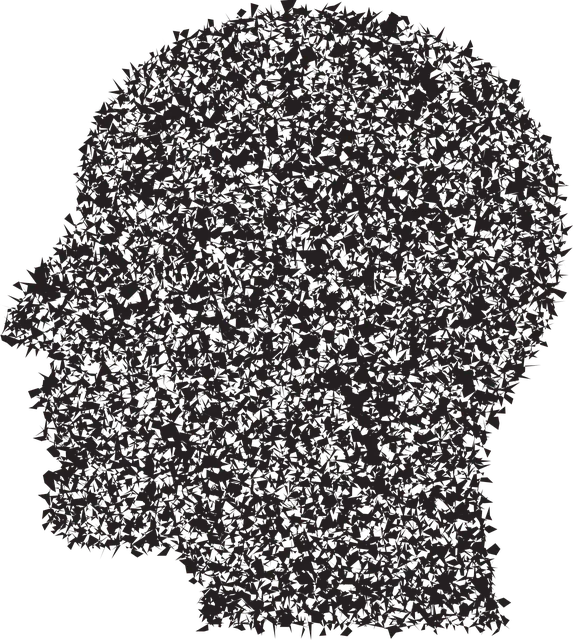Kaiser Permanente's Wheat Ridge location introduces the Resilience Building Exercises (RFE) program, an evidence-based approach focusing on resilience and mindfulness for better mental health. Integrating cultural sensitivity, RFE equips individuals with practical tools to manage stress and prevent depression through comprehensive training and tailored sessions. This community initiative, leveraging a dedicated mental health phone number and holistic methods like group therapy and workshops, fosters open dialogue and enhances overall well-being, empowering residents to overcome challenges.
Resilience is a powerful tool for navigating life’s challenges, and RFM (Recovery, Resilience, and Mental Health) exercises are proven to enhance well-being. This article explores how Kaiser Permanente has pioneered resilience-building programs, focusing on their community initiative in Wheat Ridge. We delve into the strategy’s impact, particularly its effectiveness through phone support, making mental health resources accessible via the Kaiser Permanente mental health phone number for Wheat Ridge residents. Understanding RFM offers valuable insights into improving community mental health support.
- Understanding RFM and its Impact on Mental Health Support
- Kaiser Permanente's Approach to Resilience Building Exercises
- Implementing RFM in Wheat Ridge: A Community-Centric Strategy
- Effective Communication: Unlocking the Potential through Phone Support
Understanding RFM and its Impact on Mental Health Support

Understanding RFM—or Resilient Facilitation Method—is key to unlocking effective mental health support strategies. This evidence-based approach focuses on building resilience, a vital component in navigating life’s challenges. By integrating RFM techniques, individuals can enhance their ability to cope with stress and adversity, fostering a sense of calm and empowerment.
The impact of RFM extends beyond individual growth; it offers valuable insights for organizations like Kaiser Permanente, especially its Wheat Ridge location. By incorporating RFM into mental health services, they can empower patients to take charge of their well-being. This involves teaching practical tools such as mindfulness meditation and self-care practices, empowering folks to manage stress effectively.
Kaiser Permanente's Approach to Resilience Building Exercises

Kaiser Permanente, a renowned healthcare organization based in Wheat Ridge, has embraced an innovative approach to mental health support through its Resilience Building Exercises (RFE) program. This initiative recognizes the importance of fostering resilience as a key strategy for improving overall well-being and preventing depression. By integrating RFE into their services, Kaiser Permanente takes a proactive step towards enhancing patient care.
The program is designed with a cultural sensitivity in mental healthcare practice at its core, ensuring that exercises are inclusive and tailored to diverse populations. This approach, coupled with comprehensive Healthcare Provider Cultural Competency Training, enables the organization’s mental health professionals to address the unique needs of every patient. Through these resilience-focused sessions, Kaiser Permanente aims to empower individuals with coping mechanisms, promoting a sense of agility in the face of life’s challenges, and ultimately reducing the risk of mental health disorders such as depression.
Implementing RFM in Wheat Ridge: A Community-Centric Strategy

In Wheat Ridge, the implementation of RFM (Resilience, Flexibility, and Mindfulness) as a community-centric strategy has been transformative, particularly in addressing mental health concerns. Kaiser Permanente’s mental health phone number for Wheat Ridge residents serves as a vital resource, yet the RFM approach goes beyond individual support. By fostering inner strength development and promoting conflict resolution techniques within the community, this initiative aims to create a supportive ecosystem that enhances overall well-being.
The program encourages residents to participate in various resilience-building exercises designed to strengthen their mental fortitude. These activities include mindfulness workshops, stress management seminars, and group therapy sessions focused on emotional intelligence. By fostering open dialogue and providing accessible resources like the Kaiser Permanente mental health hotline, Wheat Ridge is witnessing a rise in Mental Health Awareness, empowering individuals to navigate life’s challenges with enhanced resilience.
Effective Communication: Unlocking the Potential through Phone Support

Effective communication is a cornerstone in building resilience, especially when it comes to mental wellness. At Kaiser Permanente Wheat Ridge, phone support has emerged as a powerful tool for providing individuals with essential coping skills development and emotional intelligence resources. Through this service, trained professionals offer a safe space for people to express their feelings, fears, and frustrations, fostering open dialogue that strengthens their ability to navigate challenging situations.
The mental health phone number serves as an accessible gateway, allowing folks from diverse backgrounds to connect with dedicated support staff who can guide them through various exercises tailored to enhance resilience. This personalized approach not only empowers individuals but also equips them with the tools needed to maintain and improve their overall mental wellness, ensuring they feel equipped to face life’s hurdles head-on.
Resilience is a powerful tool for navigating life’s challenges, and the RFM framework offers a structured approach to building this strength. As demonstrated by Kaiser Permanente’s successful implementation of resilience-building exercises in Wheat Ridge, community-centric strategies that incorporate effective communication can significantly enhance mental health support. By providing accessible resources like the Kaiser Permanente mental health phone number for Wheat Ridge residents, these initiatives ensure that individuals have the tools and resources they need to foster resilience and improve their overall well-being.






